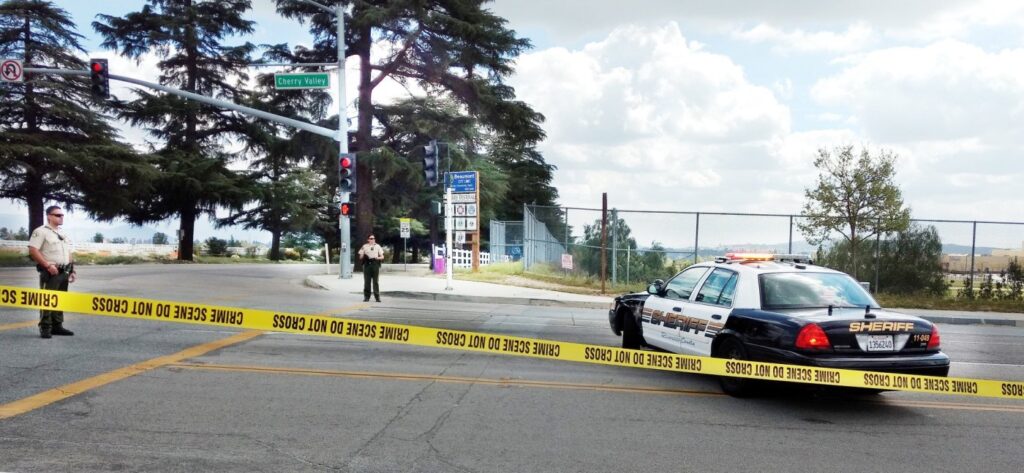
Civil rights attorneys across Southern California on Monday, June 26, applauded a state Supreme Court decision holding police more accountable for alleged misconduct, while law enforcement officials said it will undoubtedly result in more lawsuits challenging police actions.
“It sounds like it’s going to increase liability for us, and it may have some implications for our training programs,” Riverside Police Chief Larry Gonzalez said in an interview. “We may need to revise training protocols to ensure that our officers are equipped with the knowledge and skills that they need that minimizes the risk of liability.”
Gonzalez said his department will continue to work closely with its legal counsel and community stakeholders in developing new policies and procedures, while also protecting the rights of his officers.
Supreme Court ruling
On Thursday, June 22, the California Supreme Court unanimously rejected an argument by Riverside County that its sheriff’s deputies could not be sued for leaving a man’s naked body lying in plain sight for eight hours while officers investigated his killing.
Riverside County maintained that a provision of the Government Claims Act — Section 821.6 — immunizes public employees from claims of injury caused by wrongful prosecution. While that may be true, the state’s high court ruled that that immunity did not extend to law enforcement investigations.
“While other provisions of the Government Claims Act may confer immunity for certain investigatory actions, it does not broadly immunize police officers or other public employees for any and all harmful actions they may take in the course of investigating crime,” Associate Justice Leondra Kruger wrote in the ruling.
Yaoska Machado, a spokesperson for Riverside County, said in an email on Monday, “We’re reviewing the Supreme Court decision to determine our next steps in the court process.”
Murder-suicide case
The case stemmed from an apparent murder-suicide at the Royal Coach Mobile Home Park in Cherry Valley on March 25, 2017. Riverside County sheriff’s deputies responded with a SWAT team to an assault with a deadly weapon call at the park, where they found Jose Leon, 46, lying in the road, dead from gunshot wounds.
Deputies heard additional gunshots coming from a nearby home, where they found John Malicek, 67, dead inside the residence, also from gunshot wounds, according to a sheriff’s news release.
Leon’s widow, Dora Leon, filed a lawsuit alleging negligence and infliction of emotional distress, claiming deputies dragged her husband’s body behind a police vehicle, and in the process his pants were pulled down, exposing his genitals. His body was left like that, in public view, for about eight hours while deputies investigated.
Lower courts dismissed the case, ruling that state law provides immunity to law enforcement officers and agencies for police conduct during investigations. But in its ruling last week, the Supreme Court reinstated Dora Leon’s lawsuit. Kruger wrote that the lower court decisions were wrong, saying police investigations cannot be interpreted as part of the prosecution process.
In a telephone interview Monday, Mission Viejo attorney James Alquist, representing Dora Leon, said, “As you can imagine, we’re happy because the decision came down in our favor, and it appears to be significant.”
But Alquist declined to comment further because of the ongoing litigation. “The case has to run its course, and we don’t want to get in the way of anything that might unfold by weighing in with our opinion,” he said.
Attorneys weigh in
Civil rights attorneys, however, praised the decision.
Dale Galipo, a Woodland Hills civil rights attorney who has represented clients in hundreds of police misconduct cases in Southern California for more than two decades, said the Supreme Court’s decision was a “step in the right direction” because it holds police more accountable. And as a result, he said, the courts will be potentially less inclined to grant them immunity for misconduct.
“So, less protection for officers and more accountability and rights to civilians and citizens,” Galipo said. “Officers are going to have to realize that if they act inappropriately at the scene of an incident … they could be held accountable, and so can their departments.”
He predicted the ruling will likely translate into a spike in civil filings in both state and federal courts.
“It will also increase the scope of the lawsuits so that in addition to excessive force and traditional claims, there’s going to be claims of other inappropriate conduct during investigations,” Galipo said.
In a joint statement Monday, Victorville criminal defense attorneys Jim Terrell and Sharon Brunner, who also specialize in civil litigation involving alleged police misconduct, said that prior to the Supreme Court’s precedent-setting decision, the Government Claims Act was overly broad, essentially granting police carte blanche in investigations.
“We believe that Supreme Court decision will allow injured parties to seek redress by parties harmed by the police. Carte blanche for police has ended,” Terrell and Brunner said in the statement, calling the statute itself “Draconian.”
“It is amazing such a statue could even exist in our modern times,” Terrell and Brunner said in their statement. “The language in 821.6 states the employee isn’t liable ‘even if he acts maliciously and without probable cause.’ “
They agreed that the high court decision also will require additional training of police and adjusting policies that ignored abuses in investigations.
San Bernardino County District Attorney Jason Anderson said he expects to see an increase in lawsuits in Superior Court as a result of the Supreme Court ruling, but predicted there won’t be much of an impact at the prosecution level.
“But it will for law enforcement,” Anderson said. “This will be something they assess and have training on.”
The Associated Press contributed to this report
Related Articles
CNN obtains 2021 recording of Trump discussing classified docs
Supreme Court allows lawsuits over sexual abuse against Ohio State
Fugitive warrant issued for man charged with attacking CHP officer
Wyoming’s first-in-the-nation abortion pill ban blocked before it was set to take effect
Inmate charged with threatening Orange County judge
